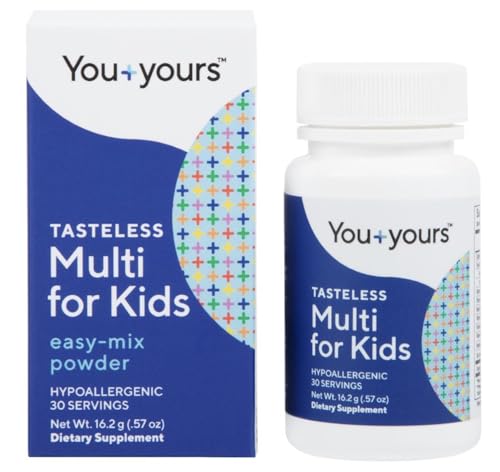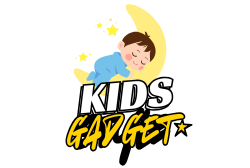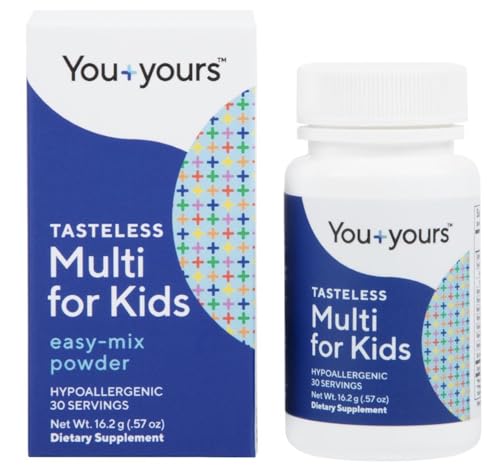Navigating the world of nutrition for autistic children can sometimes feel like a puzzle. Many parents face unique challenges, from sensory sensitivities that make certain textures or flavors a no-go, to picky eating habits that can lead to nutritional gaps. Getting enough hydration and vital nutrients is crucial for every child, but especially for those on the autism spectrum, where dietary needs and gut health often play a significant role in overall well-being.
That’s why finding the best drinks for autistic kids – or at least the best ways to get essential nutrients into their drinks – becomes a top priority. It’s not just about what’s in the cup; it’s about what that cup can deliver to support their growth, energy, and cognitive function. Sometimes, it’s even about the tools and resources that help manage daily routines, ensuring they’re well-supported in all aspects of their lives, including their hydration and nutritional intake.
We’ve rounded up five products designed to make a real difference. While some are direct nutritional aids to mix into their favorite beverages, others offer practical support that indirectly helps parents ensure their children are comfortable, safe, and ultimately, well-nourished. Let’s dive into some fantastic options that can help you champion your child’s health and happiness.
1. Tasteless Multivitamin Powder for Kids + Toddlers- No…

Finding a multivitamin that your child will actually take without a struggle can be a parenting superpower! This tasteless multivitamin powder is a game-changer for those dealing with sensory sensitivities or picky eaters. It’s designed to seamlessly blend into any preferred beverage or soft food without altering its taste, color, or texture, ensuring your child gets essential nutrients without even knowing it. No more battles over chalky pills or syrupy liquids – just pure, unadulterated goodness to help fill those dietary gaps.
Key Features:
– Nutrition without added sugar or sweeteners, unlike many chewable or liquid alternatives.
– Truly tasteless and dissolves completely clear in liquids or soft foods.
– Vegan, non-GMO, and free of common allergens like gluten, soy, dairy, nuts, fish, and shellfish.
– Optimized blend of 9 key nutrients to cover essential daily needs.
Pros:
– Eliminates taste and texture issues common with traditional multivitamins.
– Easy to incorporate into daily routines without child detection.
– Free from a wide range of common allergens and additives.
– Provides essential vitamins and minerals crucial for healthy development.
Cons:
– Requires mixing into a drink or food, not a standalone product.
– Might require careful measurement for precise dosing.
User Impressions:
Parents consistently rave about the “truly tasteless” aspect of this powder, making it a lifesaver for getting vital nutrients into even the most selective eaters. Many report less mealtime stress and noticeable improvements in their children’s energy levels and overall health, calling it an “invisible superhero” for their child’s diet.
Call to Action:
See it on Amazon here
2. Healthy Heights Grow Daily Kids Protein Drink Mix (Plain)

For active kids, picky eaters, or those needing a little extra nutritional support, the Healthy Heights Grow Daily Kids Protein Drink Mix is a fantastic choice. Developed by pediatricians and clinically studied, this plain, flavorless protein powder is specifically formulated to support healthy growth in children aged 3-9. With 12 grams of high-quality whey protein per serving, it’s an excellent way to boost your child’s protein intake and provide essential amino acids, vitamins, and minerals without any unwanted flavors or corn syrup. It truly helps broaden the options for the best drinks for autistic kids when you can add something so beneficial!
Key Features:
– Plain, flavorless protein powder designed for children ages 3-9.
– Contains 12 grams of high-quality whey protein per serving.
– Free from human growth hormone (HGH), corn syrup, and preservatives.
– Can be mixed into various drinks, snacks, or even used in recipes like protein pancakes.
Pros:
– Supports healthy growth and development with essential nutrients.
– Clinically studied and pediatrician-developed for peace of mind.
– Flavorless nature makes it versatile for picky eaters.
– Excellent for active kids or those with higher protein needs.
Cons:
– Whey protein might not be suitable for children with dairy sensitivities.
– Only 7 servings per canister, may require frequent repurchasing.
User Impressions:
Many parents praise this protein mix for its ability to go unnoticed in their child’s favorite smoothies or drinks. They appreciate the clinical backing and the visible difference it makes in their children’s energy and growth, particularly for those who struggle to gain weight or meet their protein requirements.
Call to Action:
See it on Amazon here
3. Tasteless Iron for Kids + Toddlers- 4-Month Supply- No…

Iron deficiency is a common concern, especially for children with limited diets. This Tasteless Iron powder offers a gentle and effective solution, mirroring the benefits of the multivitamin powder by being completely flavorless and easily blendable. Formulated with ferric glycinate, it’s gentle on sensitive stomachs, preventing the common digestive upset associated with other iron supplements. With a generous 4-month supply, it’s a convenient and discreet way to maintain healthy iron levels and contribute to overall vitality. Another great option when considering nutritional additives for the best drinks for autistic kids.
Key Features:
– Truly tasteless iron powder that dissolves seamlessly into drinks or soft foods.
– Uses ferric glycinate for a gentle, stomach-friendly iron supplement.
– Vegan, non-GMO, and free of gluten, soy, dairy, nuts, and other common allergens.
– Each bottle provides 120 servings of 15 mg elemental iron.
Pros:
– Addresses iron deficiency without taste or digestive side effects.
– Easy to hide in preferred beverages or foods.
– Allergy-friendly and free from artificial additives.
– Long-lasting supply offers great value.
Cons:
– Requires careful dosage to avoid over-supplementation.
– Not a standalone product; needs to be mixed.
User Impressions:
Parents are thrilled with how easily this iron supplement integrates into their child’s diet, often resolving iron deficiency issues without any fuss or complaints. The gentleness on the stomach is frequently highlighted as a major benefit, making it a highly recommended choice for children with sensitivities.
Call to Action:
See it on Amazon here
4. 2025 New Safety Walking Harness for Big Kids (6-12yrs)…

While not a drink itself, this innovative safety walking harness significantly contributes to a child’s overall well-being, especially during outdoor excursions where hydration and snack access are key. Designed for big kids aged 6-12 with growth-with-me adjustability, it offers parents peace of mind and children a sense of secure exploration. Crucially for our theme, it features a cleverly hidden, compact pouch perfect for stashing snacks, toys, or your child’s favorite drink. This means they can stay hydrated and energized on the go, making outings more enjoyable and less stressful for everyone.
Key Features:
– Upgraded 2025 model with reinforced stitching and improved durability.
– Grow-With-Me adjustability for chest, height, and waist (24.4″ to 34.64″).
– Secure buckles with locks and a reinforced handle for emergencies.
– Charming design with a detachable autism awareness pin badge.
– Convenient compact pouch for snacks, toys, or drinks.
Pros:
– Enhances safety and security during outdoor activities for elopement-prone children.
– Comfortable and adjustable to fit growing kids.
– Practical storage pouch for essentials like water bottles or juice boxes.
– Promotes independence within safe boundaries.
Cons:
– Some children might resist wearing a harness.
– Primarily a safety device, not directly a nutritional product.
User Impressions:
Parents express immense relief and gratitude for the safety and freedom this harness provides. They particularly appreciate the reinforced handle and the ability to carry a drink and snacks in the hidden pouch, which makes trips to the park or store much smoother and safer, allowing their child to enjoy their best drinks for autistic kids outside the home.
Call to Action:
See it on Amazon here
5. American Sign Language for Kids: 101 Easy Signs for…

Effective communication is fundamental to a child’s well-being, and for some autistic children, verbal communication can be challenging. This American Sign Language (ASL) guide for kids offers a wonderful tool to bridge those gaps. While not directly related to beverages, the ability to clearly communicate needs like “drink,” “water,” “juice,” or “hungry” is vital for ensuring proper hydration and nutrition. By empowering your child with ASL, you’re giving them a voice, reducing frustration, and helping them express their desires for the best drinks for autistic kids and other essential needs.
Key Features:
– A comprehensive guide to 101 easy-to-learn ASL signs for children.
– Designed to be kid-friendly and engaging for young learners.
– Focuses on practical, everyday signs useful for communication.
– Supports cognitive development and reduces communication frustration.
Pros:
– Empowers non-verbal or minimally verbal children to communicate.
– Can reduce tantrums and frustration related to unmet needs.
– Fosters a stronger connection between child and caregiver.
– Teaches valuable life skills and supports developmental growth.
Cons:
– Requires consistent effort from both child and caregiver to learn.
– Not a physical product for consumption or direct physical aid.
User Impressions:
Families highlight this ASL book as a transformative resource. They report a significant reduction in meltdowns and increased understanding once their children are able to sign for basic needs like drinks and snacks. Many find it an invaluable tool for enhancing communication and strengthening family bonds.
Call to Action:
See it on Amazon here
Frequently Asked Questions (FAQs)
Q1: Why is hydration so important for autistic kids?
A1: Hydration is crucial for everyone, but for autistic children, it’s especially vital. Many may have sensory aversions to the taste or texture of plain water, or simply forget to drink. Dehydration can worsen symptoms like fatigue, irritability, and constipation, which are already common challenges for some on the spectrum. Adequate fluid intake supports concentration, digestion, and overall physical and cognitive health.
Q2: What are common challenges when trying to get autistic children to drink?
A2: Common challenges include sensory sensitivities to taste, temperature, or texture of drinks, a preference for specific brands or types of drinks, difficulties understanding thirst cues, and rigid routines that make introducing new drinks difficult. Picky eating often extends to picky drinking!
Q3: How can I encourage my child to try new drinks or supplements?
A3: Start small and go slow. Introduce new options gradually, perhaps by mixing a tiny amount into a familiar favorite drink. Offer choices, let them help prepare, and make it a positive, no-pressure experience. Using fun cups, straws, or making a “special drink” can also help. Positive reinforcement and routine can also be very effective.
Q4: Are there any specific ingredients to look for or avoid in drinks for autistic kids?
A4: Many parents of autistic children choose to avoid artificial colors, flavors, sweeteners, and high-fructose corn syrup, as these can sometimes be linked to behavioral changes or gut sensitivities. Look for products with natural ingredients, minimal processing, and those free from common allergens if your child has sensitivities. Opt for water, diluted natural fruit juices, or milk alternatives as primary choices.
Q5: What role do supplements play if my child is a picky eater?
A5: Supplements, like the tasteless multivitamin and iron powders reviewed, can be incredibly helpful in filling nutritional gaps that arise from picky eating. They ensure your child receives essential vitamins, minerals, and protein crucial for growth and development, even if their diet is limited. Always consult with a pediatrician or a registered dietitian before starting any new supplements.
Q6: How can communication tools like ASL help with hydration and nutrition?
A6: For children who are non-verbal or have limited verbal skills, tools like ASL can be life-changing. Learning signs for “drink,” “water,” “hungry,” or specific food items allows them to clearly express their needs and desires. This reduces frustration, prevents meltdowns, and ensures caregivers can promptly provide the necessary hydration and food, fostering a more positive and communicative environment.
Q7: Beyond drinks, what other strategies can support an autistic child’s health?
A7: A holistic approach is best! This includes establishing consistent routines, creating a sensory-friendly environment, providing opportunities for physical activity, ensuring adequate sleep, and seeking support from therapists (occupational, speech, behavioral) as needed. Addressing gut health through diet and supplements can also be a key component for many children on the spectrum.

